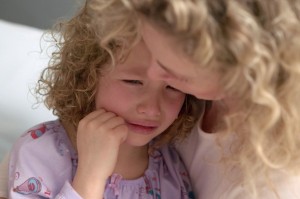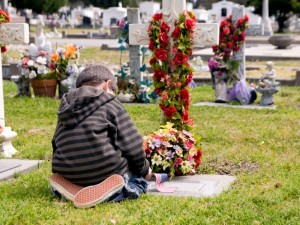Helping Children Cope With Loss, Death, and Grief
January 3, 2013 by Logan Morgan
Filed under Events, Relationships
When A Child Grieves And How To Help Them Deal With Grief
Grief whether it’s a parent, grandparent, sibling or much-loved pet who dies, the grief a child feels can be overwhelming. By encouraging the child to share their feelings and giving them time to grieve, you can help them to say goodbye.
Grief is very individual and there is no ‘right’ way to feel. Children might withdraw, mope around, become more troublesome, have temper outbursts, change their appearance or cry. Some grieve openly right away. Others take a while to show their feelings. A child’s grief may not be constant as feelings come and go repeatedly.
Answer the questions they ask. even the hard ones.
Kids learn by asking questions. When they ask questions about a death, it’s usually a sign that they’re curious about something they don’t understand. As an adult, a couple of the most important things you can do for children is to let them know that all questions are okay to ask, and to answer questions truthfully. Be sensitive to their age and the language they use. No child wants to hear a clinical, adult-sounding answer to their question, but they don’t want to be lied to either. Often the hardest time to be direct is right after a death. When a child asks what happened, use concrete words such as “died” or “killed” instead of vague terms like “passed away.” A young child who hears his mother say, “Dad passed away” or, “I lost my husband,” may be expecting that his father will return or simply needs to be found.
Remember other children may hear their parents talking about the death if it is known in the local community and speak to your child about what has happened. It is important your child hears information from you first. Do not hide the fact that you are upset and miss the person who has died so that they can feel comfortable showing their feelings too.
There are a number of resources that can support and help children, including specialist organisations and picture and storybooks. There are also helplines and websites for teenagers and young adults wanting to talk with someone about the issues they face after a bereavement.

